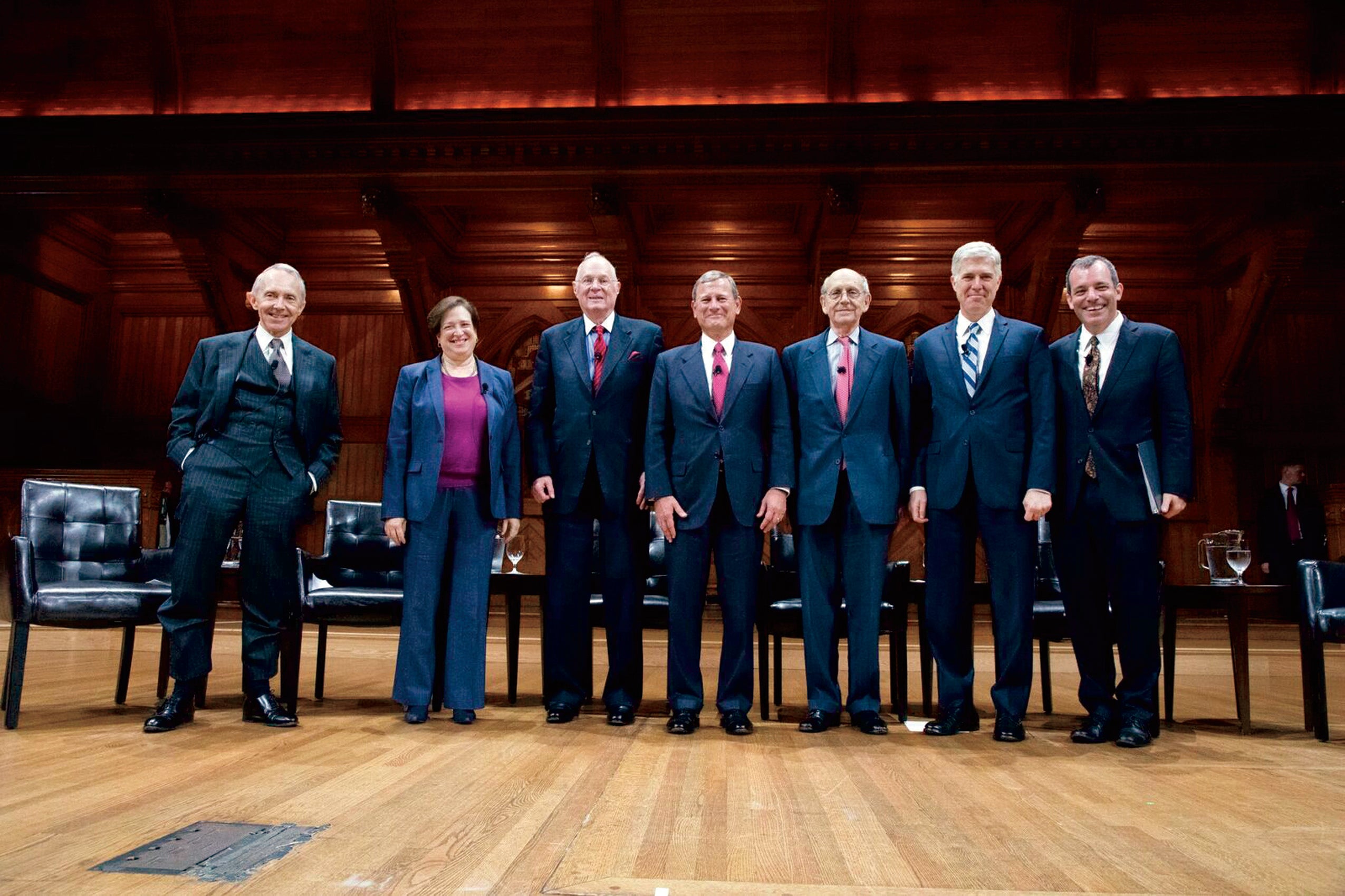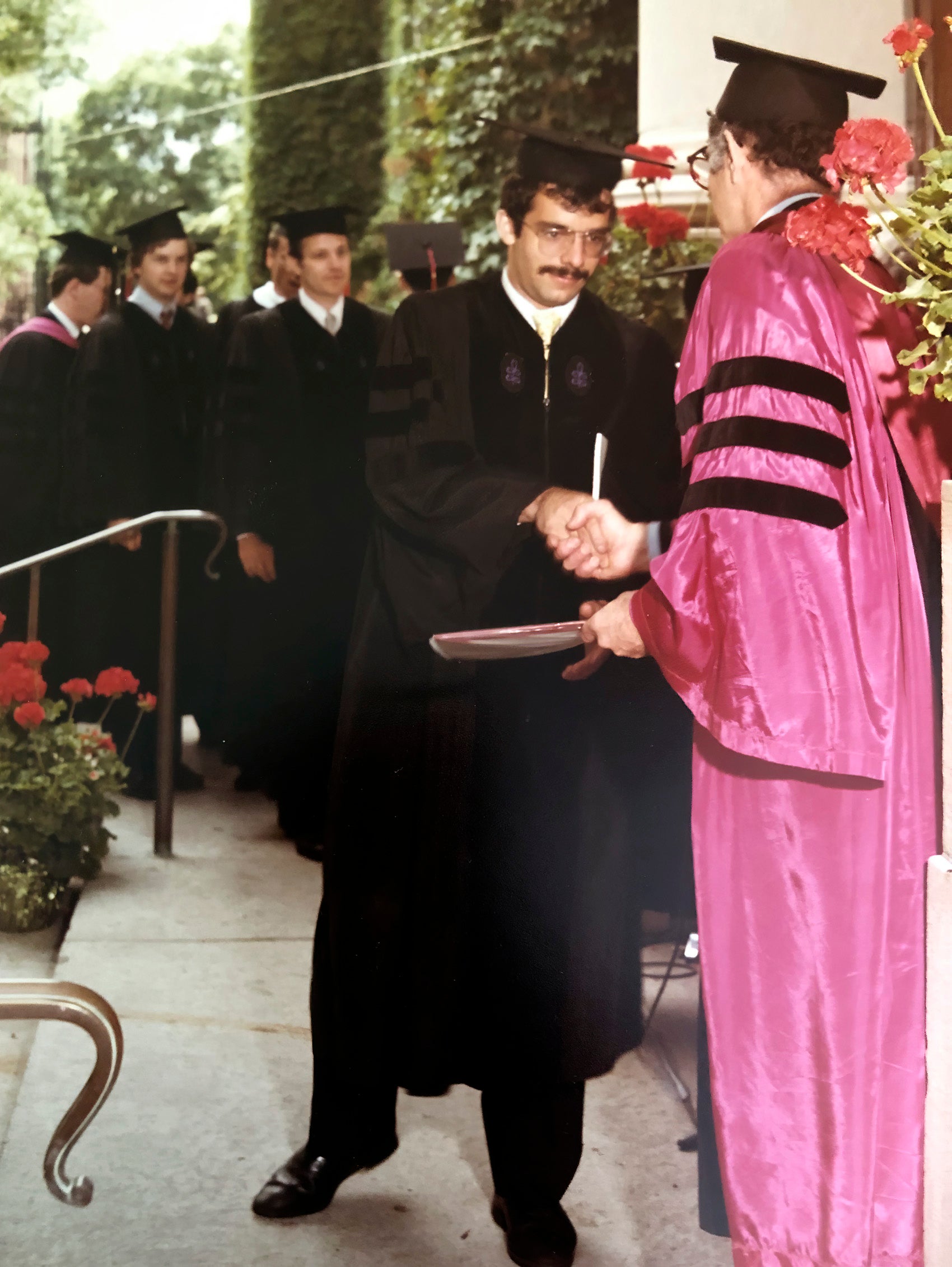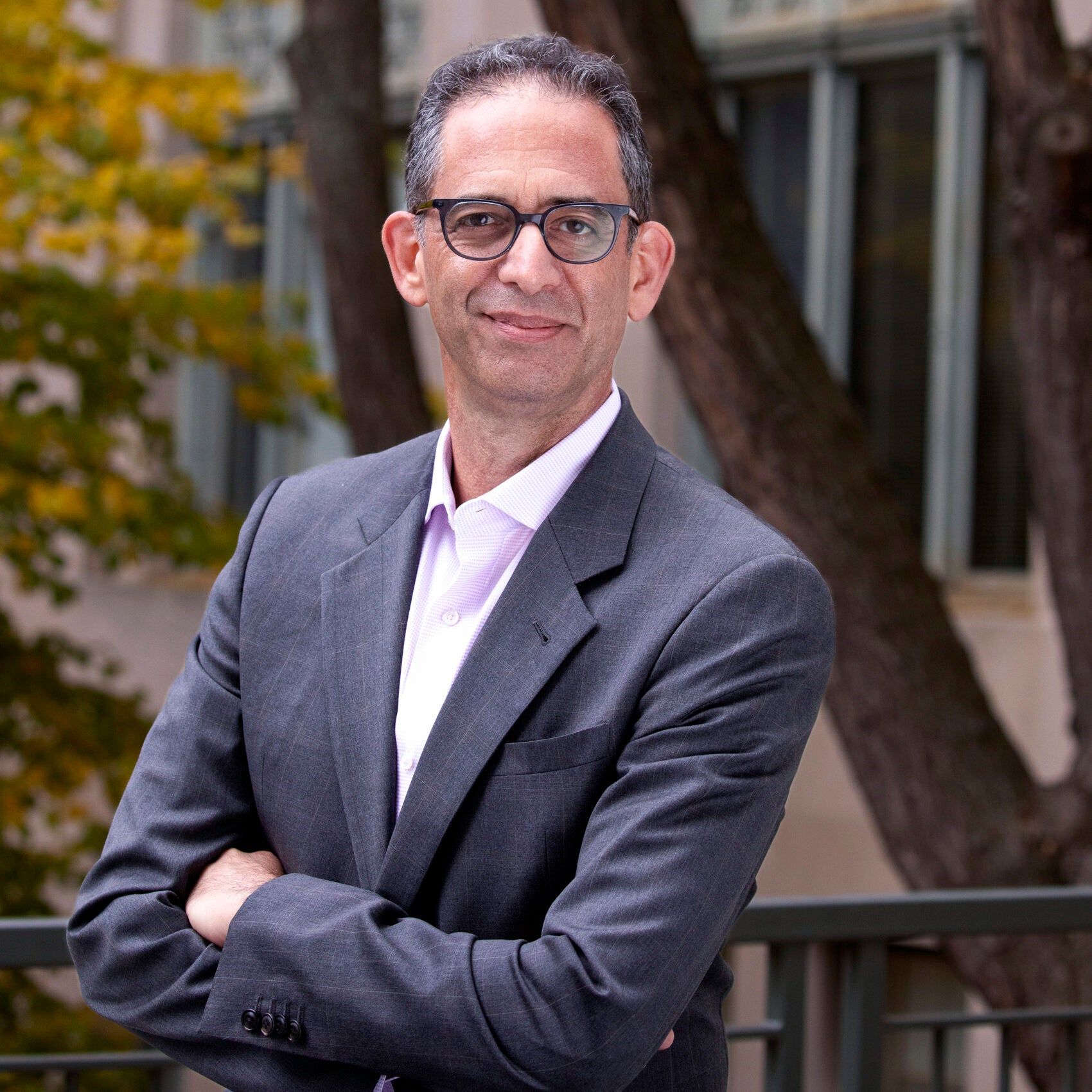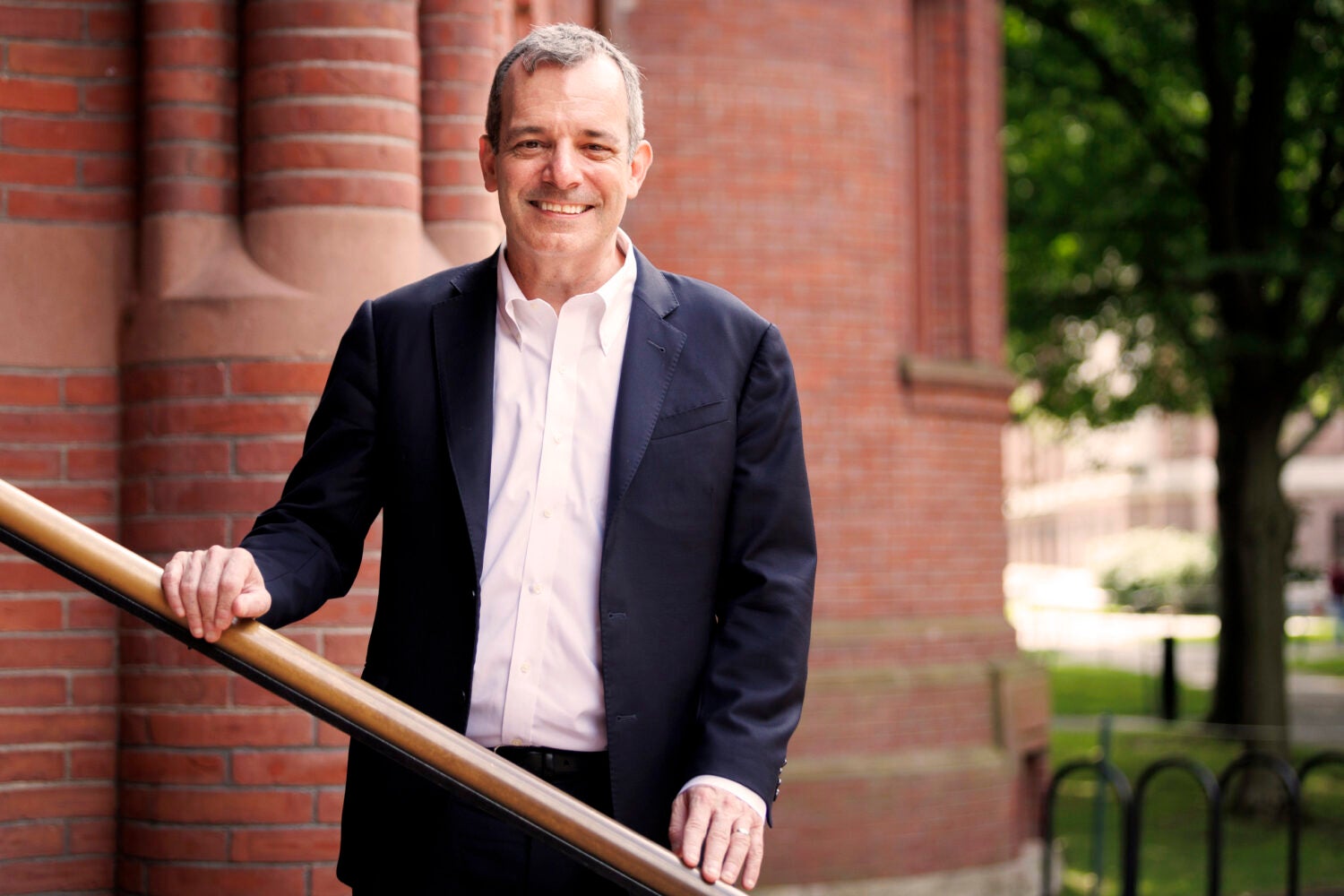In August, John F. Manning ’85, a renowned scholar of administrative law, legislation, and federal courts and dean of Harvard Law School since 2017, was appointed provost of Harvard University, the school’s chief academic officer. His responsibilities now include working with academic and administrative leaders to foster collaboration across all the schools, to advance innovations in teaching and learning, and to promote academic excellence and the free exchange of ideas.
“He is the right person for the moment in which we find ourselves, motivated by love for and service to the institution that raised his own sights, and eager to make it possible for all members of our university to thrive,” said President Alan M. Garber. Manning, who served as interim provost from March to August, brings many perspectives to his new role — as an alumnus of Harvard College and Harvard Law School, as a professor, and as dean of the law school.
Manning first set foot on campus in the fall of 1978. As a first-generation student, he recalls being initially nervous and uncertain, but his lasting memories are of his enthusiasm and enduring gratitude for his undergraduate experience. He said, “Every class I took was mind-opening and exciting. Especially coming to Harvard College as a first-gen student, you get to feel the sensation of your life changing in real time.”

After graduating in 1982, Manning enrolled in the law school, where he was an editor on the Harvard Law Review. He went on to clerk for U.S. Supreme Court Justice Antonin Scalia ’60 and Judge Robert Bork on the U.S. Court of Appeals for the D.C. Circuit. In 2004, after serving in the U.S. Department of Justice, in both the Office of Legal Counsel and the Solicitor General’s Office, and as a professor at Columbia Law School for 10 years, Manning returned to Cambridge to join the Harvard Law faculty.
As dean, Manning launched a number of initiatives to nurture the free exchange of ideas and a culture of generous listening. These include a greater variety of faculty workshops in which colleagues could exchange ideas about important issues in real time, new orientation programming for incoming students on how to have difficult conversations, and the Rappaport Forum, in which experts from different perspectives model respectful debate about some of society’s most challenging issues.
“I love the alma mater and am grateful for the opportunity to serve.
John Manning
He also worked to reduce barriers to legal education. In addition to increasing spending on financial aid grants, last February he announced the launch of the Opportunity Fund, which enables J.D. students with the highest financial need to attend Harvard Law tuition-free for all three years. Under Manning’s leadership, the school also bolstered its Low-Income Protection Plan and launched a new Public Service Loan Forgiveness program.
A new first-year Constitutional Law course, a new legal writing requirement, and a required course in negotiation and leadership, which focuses on listening actively and generously to opposing viewpoints, are among the many curricular reforms Manning instituted to respond to the changing legal profession.
Manning also drove the creation of Zero-L, a new, self-paced online course designed to prepare all incoming students for law school on day one, which has now been used by thousands of law students across the country. He spearheaded the creation of Harvard Law School Online, a strategic initiative designed to bring the expertise of the school’s faculty to new learners around the world. Manning also oversaw the launch of Future Leaders in Law, a yearlong pre-law pipeline program to help prepare students to apply for admission to law schools around the nation.

As interim provost, Manning played a central role in advancing several key university-wide initiatives — among them, the Open Inquiry and Constructive Dialogue Working Group and the Institutional Voice Working Group. Both brought together faculty from across Harvard to examine important questions — how to foster open inquiry on campus and when the university should speak on public issues — both of which address the way the university fulfills its mission of research, teaching, learning, and service.
Among his duties as provost, Manning oversees university-wide offices dedicated to advances in learning, faculty development, research, international affairs, technology development, trademark, student affairs, and gender equity, as well as the work of the Harvard Library. He also has responsibility for cultural and artistic units, such as the Harvard University Native American Program, Harvard Art Museums, and the American Repertory Theater. He supports the university’s important work addressing its legacy of slavery, guided by the recommendations and findings of the Presidential Committee on Harvard & the Legacy of Slavery.
Reflecting on his new role, Manning said, “I am grateful every day to be here. Harvard has enabled me as a student, as a teacher, as an administrator to learn and grow and to live a life of professional fulfillment that I could not have imagined as a child. Even on the hardest days, I love the alma mater and am grateful for the opportunity to serve.”
This piece is based on an article in the Harvard Gazette.
John Goldberg Continues as Interim Dean
The search for Manning’s successor as Harvard Law dean will launch this fall. In the meantime, John C.P. Goldberg, Carter Professor of General Jurisprudence, who was previously deputy dean, will continue to serve as interim dean.
Goldberg, a leading scholar in tort law, private law, and legal theory, has been a member of the law faculty since 2008. In that time, he has taught numerous courses, including Constitutional Law, Criminal Law, and Torts. Before joining the Harvard faculty, he taught and served as associate dean for research at Vanderbilt Law School. In addition to his previous Harvard service, including as a member of the Provost’s Advisory Committee, Goldberg was the first chair of the university’s Electronic Communications Policy Oversight Committee.
Beyond Harvard, he is an associate reporter for the American Law Institute’s Fourth Restatement of Property, an adviser to the Third Restatement of Torts, a co-editor-in-chief of the Journal of Legal Analysis, and a member of the editorial boards of the Journal of Tort Law and the journal, Legal Theory. He clerked for Judge Jack Weinstein of the Eastern District of New York and for U.S. Supreme Court Justice Byron White. He earned a B.A. from Wesleyan, an M.Phil. in politics from Oxford, an M.A. in politics from Princeton, and a J.D. from New York University School of Law, where he served as editor-in-chief of the NYU Law Review.

